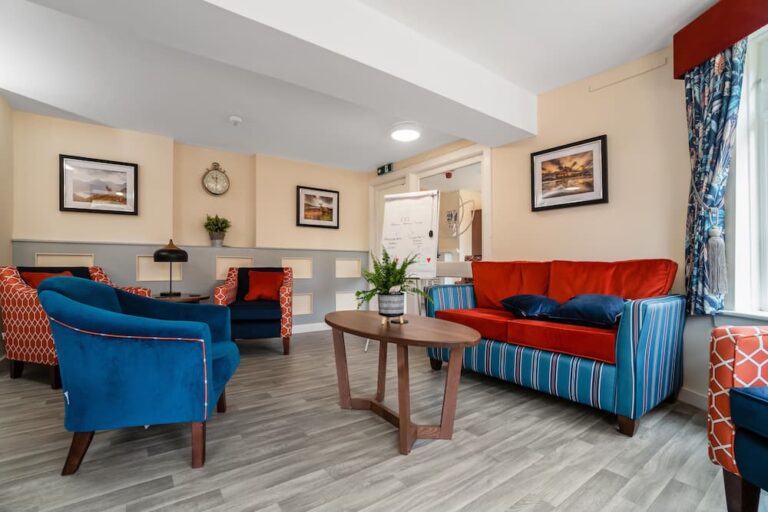When you think about a phobia, there’s a high chance that you’ll envision fears over certain animals, heights, small spaces or flying.
This is down to the fact that they are the most common phobias, making such reactions normal. You may even have a phobia of such stimuli, drawing your attention towards it.
However, for some individuals, fear and anxiety are formed around social situations, encounters and events, changing such a normal image of phobia, into an unadoptable one.
 Get in Touch
Get in Touch
Our admissions team can give you expert help and advice on the best options available for treating social phobias and addiction. Get in touch today to find out more.
Social phobia, linked to anxiety disorder is a fear-based reaction to socialisation. Social situations, engagements or events, to the average person, are a part of everyday functioning.
However, to someone who’s developed anxiety from teenage years around interactivity, a social phobia can amount into adulthood, making such functionality, impossible.
By understanding the realism of social phobia, it’s clear to see how life-altering it can be, making both early adult life and adulthood difficult to manoeuvre around. This level of irregularity, deviating from a quality life is why professional support should be considered for social phobia and anxiety.
Understand and manage your symptoms of anxiety by accepting dual diagnosis addiction and social phobia treatment here at Nova Recovery. We are here to ease your life through healthy coping strategies.
What causes social phobia?
Social phobia is a complex form of anxiety, as it can develop due to a multitude of reasons, including nature and nurture theory. Such complexity can make it challenging for sufferers to understand their triggers, and how to manage symptoms of social phobia.
For some, social phobia can be a consistent response, where any degree of exposure to socialisation can cause anxiety and panic. For others, such responses can be controlled, to a degree, which is usually dependent on the cause of social phobia.
Fear of social interaction can materialise from isolation and excessive loneliness, where such feelings become second nature, making any form of engagement annoying or fearful.
Strong expectations around norms can also motivate the form of social anxiety, where pressure is in fact commonly linked to mental health instability.
Focusing on the nature theory, anxiety disorders are genetic, meaning that increased susceptibility to social fears can be hereditary. Brain functionality and health can also contribute to such susceptibility, making anxiety a natural response for many individuals in fight or flight mode.
The nurture theory also contributes to social phobias, like upbringing, as toxic and traumatic experiences and environments, parenting styles can increase the risk and normalisation of loneliness, acting as a reinforcement of social anxiety.
As there are so many different reasons for the amounting of social phobia, very similar to further causes of specific phobias, it’s vital that insight is considered if fear is driving your life. Here’s where social phobia treatment will benefit you if you’re struggling.


Scotland Based Mental Health & Addiction Treatment Providers
Key offerings available include:
- Drug and Alcohol Rehab in Scotland
- 1:1 Support from Clinical Nurse Practitioners, Registered Mental Health Nurses and Therapists
- Access to Trained Psychiatrists
- 24-Hour Nursing Care
- Comfortable & Quality Accommodation
- Clinically Led Recovery Model Underpinned by Cognitive Behavioural Therapy (CBT)
- 1 Year Aftercare
So what are you waiting for?
Begin your journeyThe signs and symptoms of social phobia
The signs and symptoms of any phobia will usually include physical symptoms of anxiety and panic. For example, exposure to your trigger can result in excessive sweating, panic, feelings of worry or fear, feelings of danger, increased heart rate, nausea, digestive issues and insomnia.
With this in mind, consistent experiences of such symptoms can reflect an anxiety disorder diagnosis. However, specifically for social phobia diagnosis, common signs and symptoms include:
- Fear over social situations
- Excessive worry about engaging with others
- The attempt to avoid social situations, hobbies, get-togethers or any form of social interaction
- Low self-confidence and esteem
- The inability to express oneself in public, maintain eye contact or sustain quality engagement
- Worry of judgment
- The inability to complete everyday tasks, down to fear of exposure
If you’re finding that fear is controlling your life, where you cannot socialise, where you cannot leave the house, where you do not want to expose yourself, and where you prefer a sense of isolation, speaking out for psychological support will be recommended. In the form of social phobia treatment, guidance and relief will be available.
At Nova recovery we can offer dual diagnosis programmes if you are experiencing severe drug or alcohol addiction as well as social phobias. Treating both conditions offers you the best chance of recovery.
The necessity of social phobia treatment
A social phobia diagnosis can be challenging to live with. As normal everyday life cannot be experienced, many individuals also suffer through other personal issues, where relationships, overall health and responsibility can begin to dwindle.
Maintaining a quality life can be tough while focusing on sustaining personal protection from others, causing concern over cognitive pressures, responses and the use of unhealthy coping strategies.
Many individuals who suffer from social phobia also suffer from secondary mental health issues, abuse addictive substances, and develop compulsive behaviours, which also require intervention.
Social phobia treatment should therefore be seen as a necessity to regain control over symptoms of anxiety, while also improving the functionality and flow of life.
Without support, it’s easy to see how isolation can turn into depression, and a downward spiral of negativity, reducing all opportunities for healthy socialisation.
Phobia treatment here at Nova Recovery
At Nova Recovery, we will combine suitable phobia treatment services to work through your trigger, side effects and management of social anxiety. The most effective form of treatment focuses on talking therapies, where personal worries, memories, and responses can be gauged.
Cognitive behavioural therapy is a commonly recommended treatment for social phobia, as it allows for emotions to be digested, looked at rationally, and worked through to adapt emotional responses.
Alongside such efforts, family therapy, exposure therapy and group therapy may also be encouraged, to work on the socialisation side of anxiety.
Small steps will be encouraged to slowly accustom clients to the exposure to social settings, and sustainably strengthen coping strategies. Alongside such steps, prescription antidepressants and mood stabilisers may be used to ease the symptoms of anxiety. However, in most cases, they will be the last resort and talking therapies prevail.
Social phobia treatment is in place to help you understand how your fears have materialised, with the aim to normalise exposure to such stimuli, with the aim to reduce your emotional responses. Treatment will also offer guidance on how to cope with future exposure, which is inevitable through a quality life.
Understanding and living with a social phobia can be complex and overwhelming. It does against our natural instincts as humans, to socialise.
However, through unravelling and working on your outlooks and responses, you can benefit from social phobia treatment and recovery steps. Contact our team for more guidance throughout your addiction and social phobia diagnosis.
John Gillen
- Author
- Last updated: July 10, 2023
John has travelled extensively around the world, culminating in 19 years’ experience looking at different models. He is the European pioneer of NAD+ (Nicotinamide Adenine Dinucleotide) treatment to Europe in 2010; and recently back from the USA bringing state of the art Virtual Reality Relapse Prevention and stress reduction therapy. His passion extends to other metabolic disturbances and neurodegenerative diseases. The journey continues. In recent times, John has travelled to Russia to study and research into a new therapy photobiomudulation or systemic laser therapy working with NAD+ scientists and the very best of the medical professionals in the UK and the USA, together with Nadcell, Bionad Hospitals own select Doctors, nurses, dieticians and therapists. Johns’ passion continues to endeavour to bring to the UK and Europe new developments with NAD+ Therapy in preventive and restorative medicine and Wellness. In 2017 John Gillen was made a visiting Professor at the John Naisbitt university in Belgrade Serbia.






